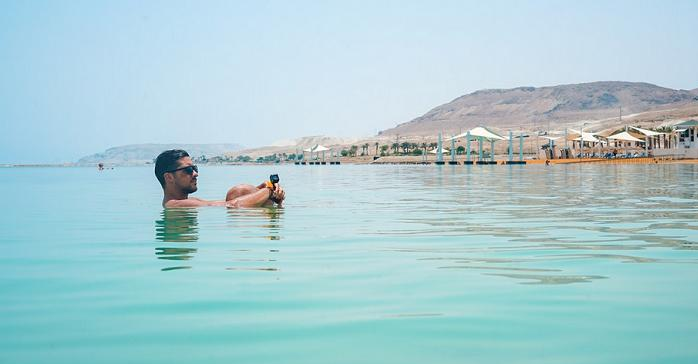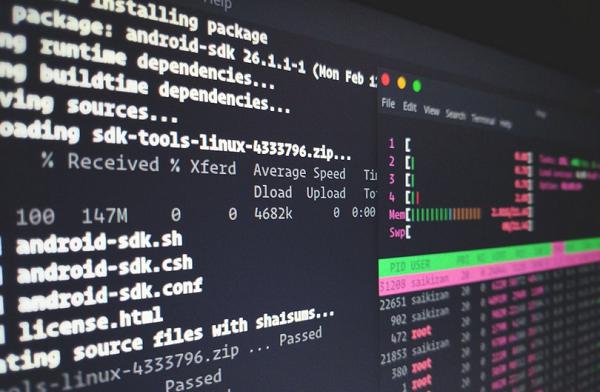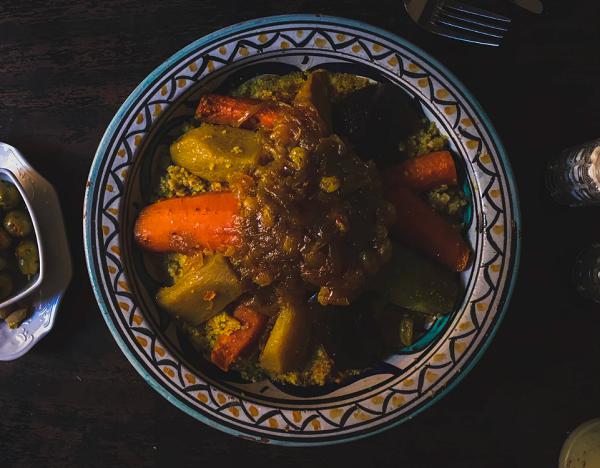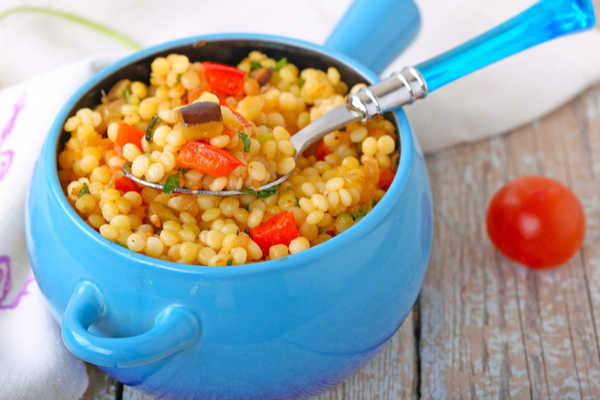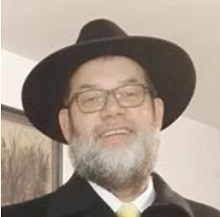The Hebrew month of Kislev & its place in the zodiac.
By: Rav Nissim Mordechai Makor

Counting from Nissan, Kislev is the 9th month of the Jewish calendar and coincides with the month of Sagittarius. The month of Sagittarius’s a very positive month and is all about miracles and wonders. The holiday of Hanukah is in celebrated on the 25th of Kislev and we know that the holidays are not times to remember a specific event in history, but are times when we can connect to special energies in the cosmos. The planet that controls this month is Jupiter, which is the planet of miracles. It also controls the month of Pisces, which has Purim. In both these months we can expect miracles.
We can use the energy of this month to bring miracles into our lives and fix any problem that we have.
The energy of Hanukah is connected to the Ohr Haganuz (Hidden Light), which is a special light that Adam experienced while in the Garden of Eden, but was hidden after he was kicked out. Kislev can be split into two words. Kis-Lamad Vav. Kis is the root of Kisoo which means to hide and Lamad Vav is 36, the 36 hours Adam was in Gan Eden. After Adam sinned, Hashem hid this special light. Today this energy/Light is reserved for the Tzaddikim and one of the only times us regular people can tap into this Light is on Hanukah. All we have to do is light the candles to connect to this light. Amazing. Rosh Chodesh is the seed for the whole month, so take advantage of it and tap into this light.
The letters that control this month are Samech and Gimmel(from Sefer Yitzerah), which numerically add up to 63. Samech created the astrological sign of Sagittarius and Gimmel created the planet of Jupiter. 63 always refers to the Sefirah of Binah, (63=Sag in Hebrew, a special way Hashem’s Name is written, which adds up to 63), which is where our physical world draws all its energy from. A powerful direct connection this month. The main spiritual function of this month is the strengthening of faith in Hashem and the hope of a complete redemption, which is what happened on Hanukah. This month we have the power to make lasting changes in our lives. Stand up for things you believe in and be open to new ideas. People born in Sagittarius actually seek challenges, they thrive on the pressure. Focus on the goal, not the challenge. This month is the month to take action, do new things because in this month everything is already here.
The negative aspect in this month is not to fall asleep in our spiritual work. The symbol of this month is the bow, which is connected to the power of prayer. We have to pray more this month with deeper Kavannah. The same as one aims with a bow, so to we have to focus and aim our prayers. Also the rainbow is connected to this month. The rainbow is a sign from Hashem that even though He might be cross with us, He will have compassion, as He always does, and not destroy the world. Therefore, the rainbow is a protection shield for us against Hashem’s wrath. The rainbow counterbalances the judgement.
The second line of the Ana Bekoah is connected to this month. This is the line that gets rid of negativity. Hopefully we will all be able to get rid of all our negativity in our lives and bring miracles and wonders into our lives.
Kislev in Jewish History
- 6 Kislev (1973) – Death of David Ben-Gurion
- 14 Kislev (circa 1568 BC) – Birth of Reuben, son of Jacob
- 14 Kislev (circa 1445 BC) – Death of Reuben, son of Jacob.
- 15 Kislev (167 BC) – The Greeks set up the “Abomination of Desolation” in the Temple
- 17 Kislev (1947) – The United Nations General Assembly approves a plan for the partition of Palestine, which eventually led to the creation of the State of Israel.
- 19 Kislev (1798) – Liberation from prison of Rabbi Shneur Zalman of Liadi and celebrated as Yud Tes Kislev by Chabad Chassidim.
- 20 Kislev (circa 457 BC) – Ezra addresses a three-day assemblage of Jews in Jerusalem, telling them to adhere to the Torah and to dissolve their interfaith marriages.
- 21 Kislev (circa 128 BC) – The Samaritan temple at Mount Gerizim was destroyed by John Hyrcanus
- 25 Kislev (167 BC) The Greeks make pagan sacrifices in the Temple
- 25 Kislev (164 BC) – The Hanukkah miracle
- 27 Kislev (circa 2105 BC) – Flood rains cease (According to Genesis 6–8)
Even though Hanukah is a Rabbinic holiday, there are places in the Torah where we find a reference to it. Where?
The 25th word (25 Kislev) in the Torah is the word Light, which refers to Hanukah and this Hidden Light.
Also the portion of Miketz is always read on Hanukah. Usually we know how many verses are in each portion, but in the portion of Miketz, we are told how many words are in the portion, 2025. Why? The word for light in Hebrew is ‘Ner’, which has a numerology of 250. Eight days of Hanukah multiplied by 250 gives us 2000, plus 25 refers to the 25th of Kislev. Thus, 2025 is an illusion to the lights and date of Hanukah (Torah Temimah).
In this portion, Toldot, the relationship between Yitzchak and Rivka is amazing. She was such a very strong women yet she has to act sneaky. She had Ruach Hachodesh and used it very wisely, she could not tell Yitzchak what Shem told her about her children. Yitzchak respected her and did not say anything to her when he realized that she had tricked him. Theirs is such a beautiful relationship. Yitzchak is the only forefather that mentions he loved his wife(at the end of last weeks portion). Not that the others did not, but the Torah only mentions Yitzchak. Why? Also Rivkah tested Yaacov. Yaacov’s main attribute was truth, yet he honored his mother and did what she said. This was Yaacov’s Akaidah. Here is where we see her strength. She said that even if Yitzchak cursed Yaacov, Chas VeShalom, the curse would be on her.
There is also something that does not make sense to me. The Torah devotes less space to Yitzchak’s life than to the lives of Avraham and Yaacov, yet there is more written about Rivka than any of the other mothers, I think even more than all the mothers combined. In last weeks portion, the whole story of Eliezer and how he finds Rivka has more verses than the story of creation in Bereishit. She suffered terribly through her life; she had a very difficult pregnancy, she suffered with Eisav, did not see Yaacov again after he left and even had to be buried alone at night.
Also, Rivka was the only mother who actually did something on her own without the consent of her husband. Sarah told Avraham to send Hagar away, but Rivka did her action clandestinely. What would have happened to the Jews if Rivka had not interceded? All the other mothers were loyal wives and followed their husbands, but by Rivka doing what she did to get Yaacov to get the blessing of Yitzchak, she changed the course of the world. This shows how much Ruach HaKodesh she had. All her actions were done with with Divine prophecy. She was such a strong woman that when Yaacov objected she said that if Yitzchak cursed him the curse would be on her. This whole story and her actions must have taken such courage, and yet she had such a bitter life. She never complained.
This seems like a paradox. I asked one Rabbi and the answer I was given was that Yitzchak represents Gevurah, judgment. We can’t have too much judgment, and Rivka balanced out Yitzchak. This is ok but does not satisfy me. Maybe someone else has some ideas.
One thing for certain was that she was definitely a worthy successor to Sarah, a hard act to follow.
Also in this portion we see the eternal struggle between good and evil, Yaacov and Eisav. They represent two cosmic forces, not just two people, and the spiritual lesson is that when one is up the other is down and visa versa. Remember this analogy that is for every person personally. We all have this struggle within us everyday. Also we know that Eisav was the first born in the physical world, but if we look at it a little bit different, in the spiritual world, what goes in first comes out last, so actually Yaacov was the first born and deserved the blessing all along. Yitzchak gave Yaacov ten blessings which correspond to the ten words in the blessing of the washing of the hands, Nitilat Yadaiim, so when we say the blessing we should have the kavannah to receive all the blessings that Yaacov received. Also Yitzchak was the only one of the fathers never to leave Israel and lived a full life of 180 years. He was like a pure offering. He is the father whose prayers are accepted by Hashem on behalf of the Children of Israel.
To me the best thing about this portion is that it is full of all kinds of blessings. Hashem blesses Yitzchak, Yitzchak blesses Yaacov twice and also Eisav. There is a lot of talk about wells which always refer to blessings and abundance. Also it says that Yitzchak reaped a hundredfold from his crops. He also makes a treaty with Avimelech.
With this month and this portion we have the power to tap into all these blessings.
There is also a small Koof in this portion, 27:46. We know that when there are small or big letters in the Torah they have a deep meaning. One of the explanations I have found is that the word which has the small letter is Katzti, meaning disgusted. It talks about idol worship and when we reach this point we need to meditate that we are diminishing the power of the negativity in the world and in our lives, especially idol worship which today doesn’t mean statues but physical things like money, cars etc.



